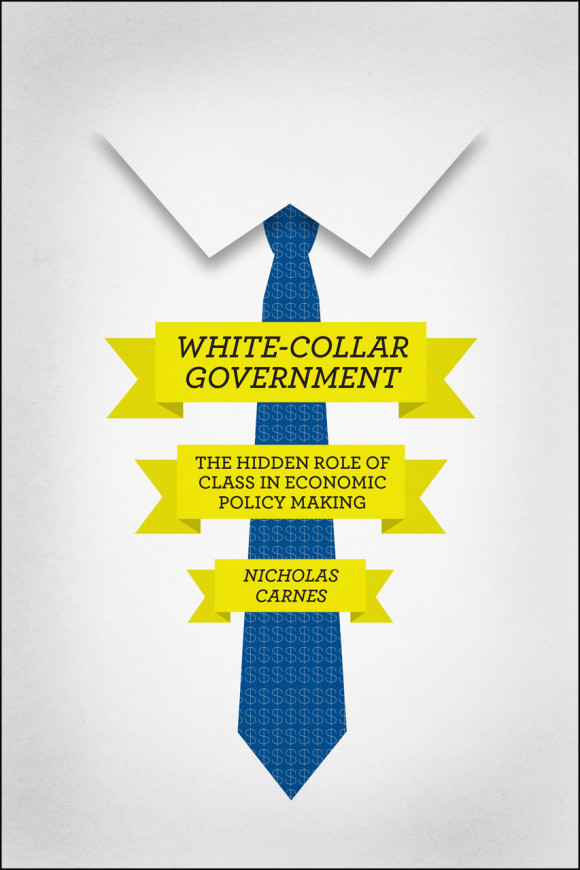Last updated on November 3, 2013
 My good friend and coauthor Nick Carnes’ book White-Collar Government: The Hidden Role of Class in Economic Policy Making is coming out today. You can order it here from Amazon. My copy arrived early last week, so I read it over the weekend.
My good friend and coauthor Nick Carnes’ book White-Collar Government: The Hidden Role of Class in Economic Policy Making is coming out today. You can order it here from Amazon. My copy arrived early last week, so I read it over the weekend.
The book’s release could not be better timed, what with last month’s government shutdown and given how some politicians seem to have it in for those at the bottom of the economic ladder. My advice: Buy it; read it. I suspect it will soon become one of those classics of American politics that one cannot afford to not have read.
In his book, Nick overwhelmingly makes the case that class matters in US politics. That is, working-class folks — folks who have spent most of their career in blue-collar occupations — are underrepresented at all levels of government.
Not only are they underrepresented, class also seems to affect how legislators vote. Members of Congress who come from big business tend to favor the business sector when they vote in the House or Senate; those who were farmers tend to favor the agricultural sector; and so on. So given that working-class folks are underrepresented, this means that few of our legislators favor the working class in how they vote in Congress–what we have is effectively a white-collar government.
The book goes even further by discussing what happens before votes are cast in Congress (e.g., in the work done by individual legislators to shepherd bills through the legislative process, in committees, etc.) and by offering a possible solution in the form of “candidate schools” geared at training working-class folks to run for office, which have had been successful in places like New Jersey.
If I had one caveat to add, it’s that White-Collar Government looks and feels like a popular-press book, but it isn’t quite one. That is, it has a very snazzy cover page and it is only 200 pages, but every page is packed with relevant statistics, and there is no doubt that this is a scholarly book. I happen to like that kind of book, but your mileage may vary if you go in expecting Freakonomics or Blink.
A Reservation System for the US?
Here’s a crazy idea: What if we took a page from India and instituted a reservation system of our own in the US? This has nothing to do with the network of reservations the US government has created for Native Americans. Rather, as Wiki has it, it is
[T]he process of setting aside a certain percentage of government jobs and vacancies in educational institutes for members of backward and under-represented communities (defined primarily by caste). Reservation is a form of quota-based affirmative action.
As Esther Duflo and her coauthors have shown beyond any reasonable doubt here, after 10 years of quotas for women, women are more likely to run for office and win elections in those places where a quota was instituted, and the presumed mechanism through which this happens is via a change in voter attitudes regarding women in politics. In an earlier article, Duflo and her coauthor had shown that “leaders invest more in infrastructure that is directly relevant to the needs of their own genders.”
I suspect that if we had a similar reservation system in the US that would have set-asides for women, gays, minorities, and people from different class backgrounds (as measured by income), to steal Nick’s line, we might finally have a government for the people, because the government would truly be by the people.
Obviously, doing something similar in the US would require a series of constitutional amendments, if not a whole new constitution. And since our legislators cannot even argue on keeping the trains running on time, the odds of my proposal coming to life are nil. As I said, it is a crazy idea, but one can always dream.